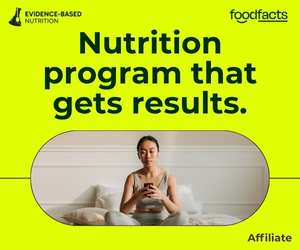
Are vegan men 'frail' and more likely to die young? What does the data suggest?





Coral Red: Mostly False
Orange: Misleading
Yellow: Mostly True
Green: True
Learn more about our fact-checking policies
The claim that “Vegan men are frail and more likely to die young, with unhealthy plant-based foods to blame” was published in the Daily Mail by John Ely on December 30, 2024, referencing a study analyzing British health data.
Our fact-check aims to analyze the accuracy of these claims, assess whether the study supports such conclusions, and provide context from peer-reviewed research and authoritative health sources.
While the study highlights associations between unhealthy plant-based diets and frailty, it also emphasizes the benefits of healthy plant-based diets. The sensational claim that vegan men are “frail” and likely to die young overgeneralizes and misrepresents the nuanced findings of the study.
This claim contributes to misinformation about plant-based diets, influencing public perceptions and health decisions. Accurate reporting is essential to promote a sound understanding of nutrition and empower customers to make impactful dietary choices.

When evaluating health claims, always consider the context of the study being cited. Look for details about the sample size, demographics, and limitations—broad conclusions drawn from narrow findings can often be misleading.
1. Core Claim: “Vegan men are frail and more likely to die young due to unhealthy plant-based diets.”
The Daily Mail’s headline has the potential to misrepresent the conclusions and scope of the study it references. Although the rest of the article is more balanced in tone and presents a more accurate depiction of findings, the headline strongly suggests a causal relationship between eating a plant-based diet and experiencing poor health outcomes, which is unsupported by evidence.

The study referenced is a cross-sectional analysis, meaning it is observational and collects data at a single point in time. What this means, as the study’s authors point out, is that it cannot be used to infer causality. This does not mean it is not valuable, as it adds to the balance of available evidence and can lead to further research. But it does make sensational headlines problematic, as these can lead to unsubstantiated fears or misconceptions about plant-based diets.
Let’s take a closer look at the evidence from the study:
- The study analyzed 73,000 British adults aged 40-70 and found that unhealthy plant-based foods (e.g., fizzy drinks, white bread) were associated with increased frailty in certain demographic groups.
- Importantly, this association was primarily observed in low-income men, not all vegan men as the Daily Mail headline suggests.
- Frailty risk was mitigated by consuming a diet rich in healthy plant-based foods like fruits, vegetables, and tofu.
Frailty is defined by multiple criteria, such as weight loss, fatigue, and reduced grip strength. The study itself notes that frailty rates in the sample were low, potentially limiting generalizability.
The link between veganism and early death is also unsupported by broader research, which frequently highlights the health benefits of plant-based diets when they incorporate whole, nutrient-rich foods.
"Balanced and healthy plant based diets have been consistently linked to positive health outcomes including reduced risk of type 2 diabetes, heart disease and even reduced risk of certain cancers. There has even been recent research showing the potential protective effects of plant based diets against severe Covid-19 infection. Rather than creating unnecessary fear about vegan diets we should be advising people to incorporate more healthy plant based foods for both health and sustainability goals."
2. “Eating a diet heavy in unhealthy plant-based foods could increase your risk of heading to an early grave, a major analysis of Brits suggests.”
While the study did find an association between adherence to an unhealthful plant-based diet and frailty risk, this claim lacks context. Let’s start by detailing what an unhealthful plant-based diet is.
What is an unhealthful plant-based diet?
The study categorizes sweets, refined grains, fruit juices, sodas and potatoes as unhealthful plant-based foods. An unhealthful plant-based diet might therefore consist of a high consumption of these products, combined with a low consumption of whole, nutrient-rich foods like fruits, vegetables, nuts, legumes and whole grains. The link between a high consumption of ultra-processed foods and poorer health outcomes aligns with findings from other related studies.
- The Daily Mail references a recent study published in The Lancet, which noted an association between an increased consumption of ultra-processed plant-based foods and cardiovascular risk.
- However, this does not inherently mean plant-based diets are worse than omnivorous diets but highlights the importance of diet quality. Focusing on whole, nutrient-rich plant-based foods is again highlighted as the main conclusion.
"It is entirely possible to thrive as a strong, fit, and healthy vegan, a fact supported by the British Dietetic Association. Some of the world’s leading athletes are vegan, demonstrating that plant-based diets can fuel extraordinary physical performance. For example, Novak Djokovic, Lewis Hamilton, Chris Paul, Alex Morgan, and Patrik Baboumian are all thriving on a vegan lifestyle.
However, it’s important to note that the healthfulness of any diet—whether vegan or omnivorous—depends on how it is approached. A poorly planned diet, regardless of the food philosophy, can lead to nutritional deficiencies and frailty. Ultimately, adopting a healthy, balanced diet is key to maintaining optimal health, no matter your dietary choice."
Contextualizing findings
The second important distinction regards the population which was found to be mostly affected by a high consumption of unhealthful plant foods. Although the Daily Mail article does go on to make that distinction, these oversimplified conclusions appear in the first paragraphs and could lead to false conclusions, reinforcing misconceptions about the inadequacy of plant-based diets for optimal nutrition.
The researchers found that “for men with a high income, uPDI (unhealthful plant-based diet) was not associated with frailty, while in contrast every 10-unit increase in uPDI was associated with 18% greater odds for frailty in men with a low income.” Furthermore, they “observed no interaction effect of income and plant-based adherence with frailty risk in women.”
Worse access to medical care, a heavy mental health burden related to being on a low income, and higher soda consumption among low-income men were all listed as potential explanations for those results. Rather than identifying and blaming plant-based foods as a possible cause for an early grave, the study's results identify a vulnerable group, low-income men, among which dietary interventions might be particularly important to help prevent frailty.
Final Take Away
The observed frailty risk underscores the need for proper dietary planning, regardless of diet type.
Our review (see how we rate media pieces here):
Misleading Potential ⭐⭐⭐⭐
Factuality ⭐⭐⭐⭐
Balance ⭐⭐
Clarity ⭐⭐⭐
The misleading potential is driven by the headline, and the confusion it could create, especially in light of growing recommendations to increase consumption of plant-based foods. The sensational headline also does not match the more factual tone of the article, adding to the confusion.
We have contacted the Daily Mail and are awaiting a response. We will update this fact-check in light of any comments we might receive.
Disclaimer
This fact-check discusses general health advice and is not a substitute for professional medical guidance. Consult a healthcare provider for personalized dietary recommendations.
Stand Against Nutrition Misinformation
Misinformation is a growing threat to our health and planet. At foodfacts.org, we're dedicated to exposing the truth behind misleading food narratives. But we can't do it without your support.
📚 Sources
Schorr, K. et al. (2025). “Unhealthful plant-based diet associates with frailty risk predominantly in men with low income from the UK Biobank cohort.” https://www.sciencedirect.com/science/article/pii/S1279770724005530?via%3Dihub
Lane, M. et al. (2024). “Ultra-processed food exposure and adverse health outcomes: umbrella review of epidemiological meta-analyses.” https://www.bmj.com/content/384/bmj-2023-077310
Rauber, F. et al. (2024). “Implications of food ultra-processing on cardiovascular risk considering plant origin foods: an analysis of the UK Biobank cohort.” https://www.thelancet.com/journals/lanepe/article/PIIS2666-7762(24)00115-7/fulltext



foodfacts.org is an independent non-profit fact-checking platform dedicated to exposing misinformation in the food industry. We provide transparent, science-based insights on nutrition, health, and environmental impacts, empowering consumers to make informed choices for a healthier society and planet.

Was this article helpful?

















.svg)
